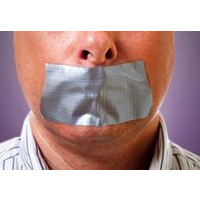State Law Protects Reviewers’ Right to be Critical on Yelp

“If you don’t have anything good to say, don’t say anything at all” may be sage advice for parents to pass along to their children, but California lawmakers think it’s a bad way to handle online comments by customers about businesses they patronize.
Governor Jerry Brown signed a law this week that makes it illegal for companies to prohibit negative reviews being posted on popular ratings sites like Yelp. Assembly Bill 2365 bars companies from slipping into contracts language that forbids customers from commenting publicly in a negative fashion about their experiences.
The bill’s author, former Assembly Speaker John Pérez, said he was inspired by the plight of a Utah couple who were fined $3,500 for violating a retailer’s terms of service agreement by madmouthing the business online. The fine resulted in their credit scores being lowered.
Businesses have long complained that message boards and websites that crowd-source reviews are regularly manipulated by competitors and malevolent people to inflict harm and extort compensation. There has also been grumbling that Yelp and others manipulate the comments section by favoring businesses that advertise with them.
In response, retailers and other establishments have begun surreptitiously slipping clauses into contracts almost never read by the public that bar them from exercising free speech.
Lawsuits have also been filed challenging the manipulation of online comments and last week the U.S. Ninth Circuit Court of Appeals delivered a victory (pdf) for Yelp that raised some questions about how far a company can go. The three-judge panel ruled against a dentist, an animal hospital and others who complained that Yelp made them look worse if they didn’t advertise.
Yelp denied it did those dastardly things but argued it didn’t matter: the company had the right to affect the results through its computer algorithms and it wasn’t extortion.
The court agreed. “The threat of economic harm that Yelp leveraged is, at most, hard bargaining,” Judge Marsha S. Berzon wrote. If customers didn’t like it, they can go elsewhere. There is no legal right to good reviews and Yelp has the right to charge for advertising. Case closed.
Lawrence Murphy, an attorney for the losers, told the Associated Press, “The Mafia wishes it had this ruling.”
California is the first state to pass a law directly addressing the issue, according to the National Journal, but 28 states protect consumers from the related category of Strategic Lawsuits Against Public Participation (SLAPP) lawsuits. SLAPPS come in many forms and are filed by professionals, contractors, retailers and other businesses, bloggers, non-profit foundations and just about anyone with a thin skin and a litiginous bent.
California’s anti-SLAPP statute lists four specific activities that are protected by free speech and allow someone to challenge a SLAPP suit head on. For the most part, they all have to do with making comments on issues of public significance or in a governmental proceeding.
California’s new anti-gag law levies a $2,500 fine for first offenses and $5,000 for each succeeding violation. Additionally, a consumer or prosecutor can also purse a $10,000 civil penalty for “a willful, intentional, or reckless violation” of the law. Nothing in the law prevents a person or business from removing a negative statement from its own comments section.
–Ken Broder
To Learn More:
California Passes Law to Protect Yelpers’ Right to Post Bad Reviews (by Laura Ryan, National Journal)
California Protects the Right to Yelp without Penalty (by Niraj Chokshi, Washington Post)
The Terrible Yelp Ruling Isn’t So Bad (by Vauhini Vara, The New Yorker)
Court Rules for Yelp in Suit over Online Ratings (by Sudhin Thanawala, Associated Press)
Boris Y. Levitt et al v. Yelp, Inc. (U.S. Ninth Circuit Court of Appeals) (pdf)
- Top Stories
- Controversies
- Where is the Money Going?
- California and the Nation
- Appointments and Resignations
- Unusual News
- Latest News
- California Forbids U.S. Immigration Agents from Pretending to be Police
- California Lawmakers Urged to Strip “Self-Dealing” Tax Board of Its Duties
- Big Oil’s Grip on California
- Santa Cruz Police See Homeland Security Betrayal in Use of Gang Roundup as Cover for Immigration Raid
- Oil Companies Face Deadline to Stop Polluting California Groundwater





